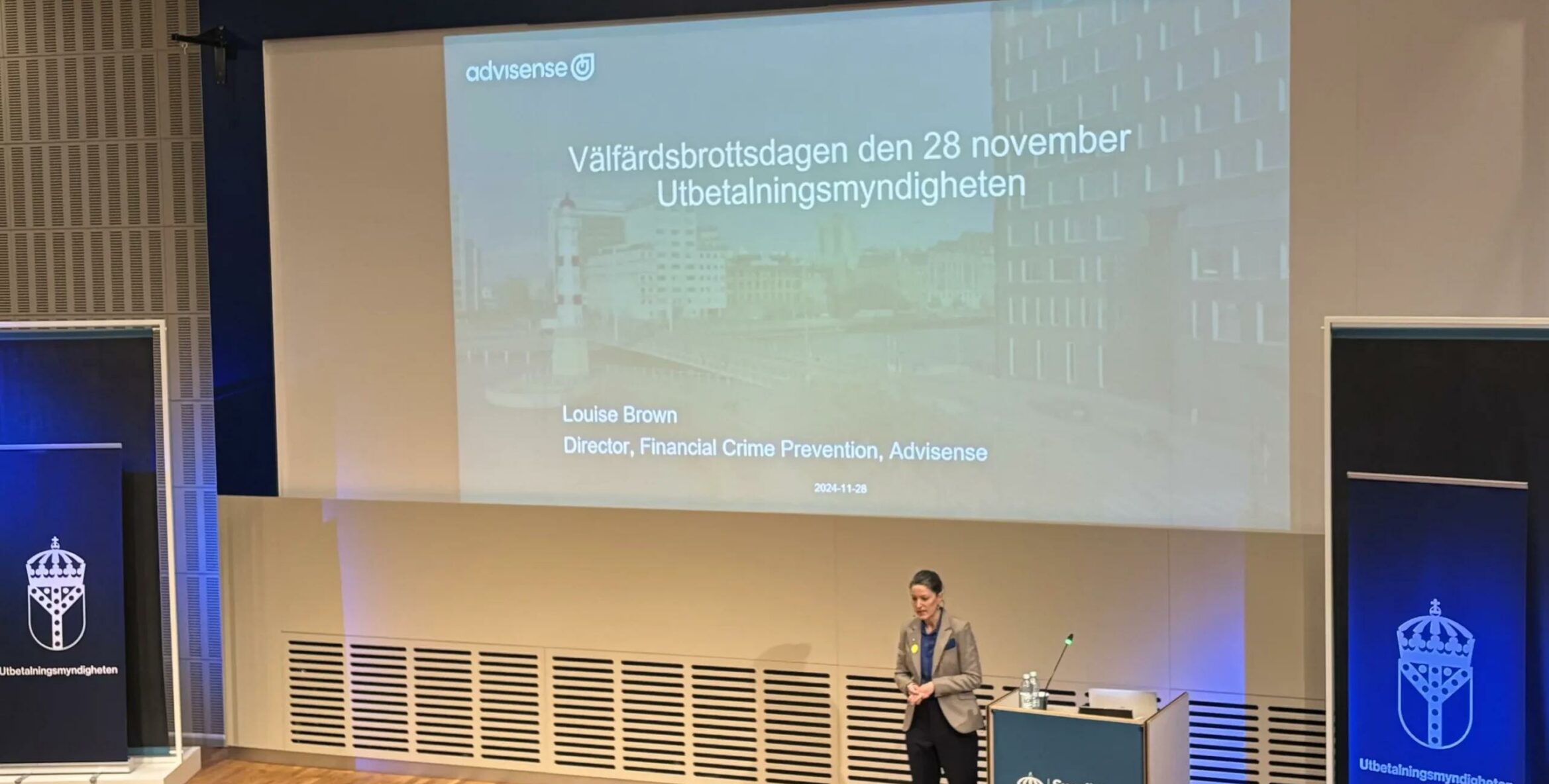Advisense joins conference on welfare crime hosted by the Swedish Payments Agency
The Swedish Payments Agency today arranged a conference on economic crime in the welfare sector, with speakers from the Swedish Tax Authorities, the Swedish Social Insurance Agency, the NGO Tryggare Sverige and Advisense. Topics discussed during this half day conference included results since the start of the Swedish Payments Agency, developments in welfare crime, causes and effects and what is needed to reverse the trend.

Representing Advisense Financial Crime Prevention team, Louise Brown was invited as final key note speaker, and talked about causes and effects, learning from financial crime prevention and anti-corruption in the private sector and foremost in financial institutes. Points from today´s presentation include:
Welfare crime is estimated to 15 – 20 billion Swedish Krona per year, some estimates are higher. Reports from Swedish National Council for Crime Prevention amongst others show that many organisations are just beginning or are still not at all working with measures to combat welfare fraud, the general perspective is that many rely on incoming alerts, which suggests that the approach is passive rather than proactive and preventing.
Some organisations struggle to understand and define risks and what constitutes a crime, and the threshold to report suspected crimes to the police is significant.
The issue is internal governance and controls, of taking a proactive and systematic approach to prevention, detection and mitigation.
Research confirms that yes, the tone at the top is key, however the organization as a whole, roles, division of responsibilities, and incentives are just as crucial as the tone at the top. Unclear roles and the mentality “it’s not my responsibility is one reason why corruption has been able to thrive. Corruption benefits from a culture of silence and people who look the other way. This may seem like a non-issue, but in practice it remains a significant challenge.
Discussing the way forward, the following very summarily was addressed:
- Willingness and support from the board and senior management is a make or break, in order to assure competent resources and capabilities.
- Clear organisational roles and responsibilities – the lack thereof can on cause a culture of silence.
- Assessment of risks – continues to be underestimated or underdone.
- Design and implement appropriate controls according to the risk exposure– both financial and non-financial controls. The right controls is something else than many controls.
- Mental preparedness to act and take measures when needed
- Follow up and ensure adequate monitoring
- Apply sanctions as appropriate, make sure to have clearly defined contractual requirements and articulated consequences in case of breach.
A big thank you to Utbetalingsmyndigheten for the opportunity to participate in today´s conference on this important topic.
